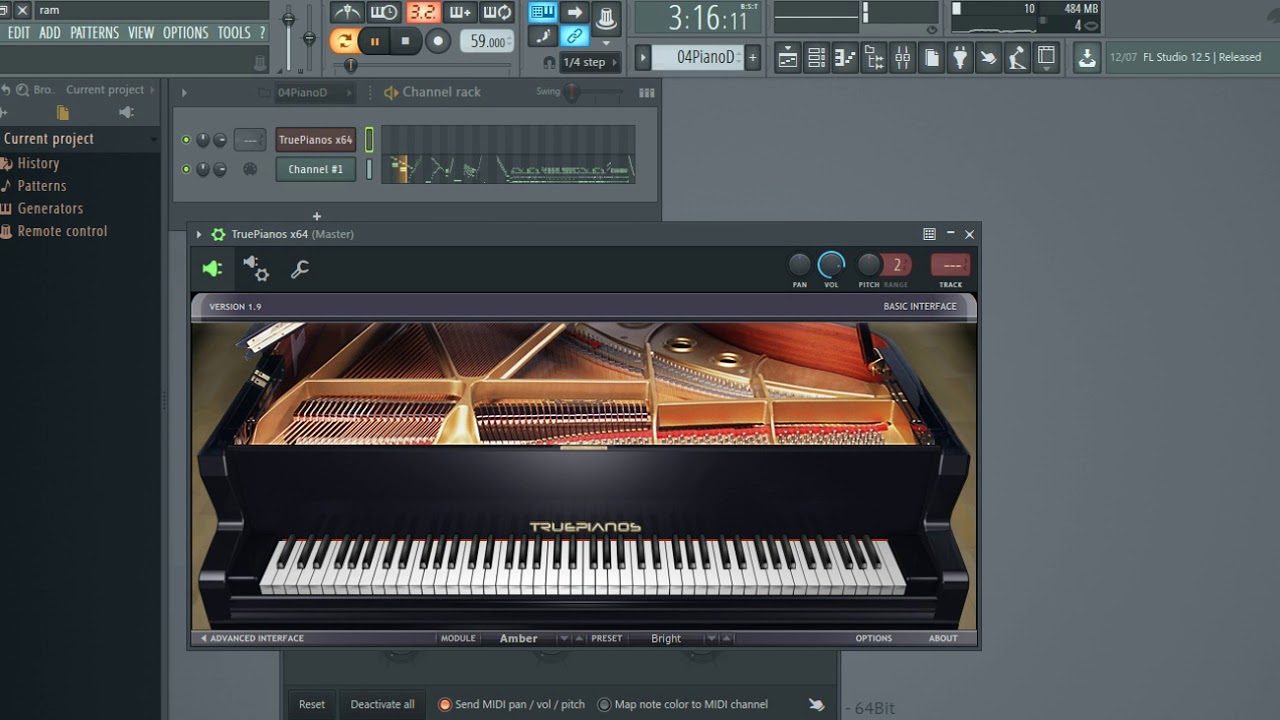

D-Bon, I hear the after first strike tonal change you described not a huge turn off for me, but definitely present. Both, so far, seem to do well on solo stuff. Tried playing a few different styles, solo, with each. Moved on to A-B' ing it with Pianoteq yesterday. Tried the different pianos in Atlantis, not bad at all actually some very strong moments.
Truepianos 64x trial#
Still have 22 days left in the trial period for TP, so I spent some time with it Saturday afternoon. I doubt I'd spend enough to buy it, though, which is why I haven't tried it. I guess I should find out if they have a demo. But frankly that's in the nitpicking area. The biggest problem I have with TruePianos is that dark minor chords sound a bit wobblier than they should: there's a beat in there that isn't necessary (I don't hear it on ROMplers or a real grand piano.) It loses some of the openness and clarity a good big grand has. To me, most ROMplers don't decay naturally: the tone is too static during the decay. What ROMplers sound nearly as good as that to you? That pretty much sums up how I feel about it, except for the ROMpler comparison. My response to that is, So what? With all the virtual pianos available, Pianoteq should sound real as soon as I start playing it I shouldn't have to spend time trying to dial in authenticity.

The default defense of Pianoteq seems to be that it has a multitude of adjustable paramaters, and that it sounds good in a mix. I also found Truepianos to be more alive and playable, which surprised me given all the talk about how Pianoteq is so playable. To me, Truepianos (Atlantis module) sounds like a good, high-end ROMpler piano, whereas Pianoteq has a synthetic quality to it that makes it unconvincing. In terms of realism, it's not even close: Truepianos over Pianoteq by a mile. I adjusted no velocity settings, and the only EQ adjustment I made was to eliminate any default reverb. It had been a while since I demoed them, so with fresh ears I put them head to head, testing each on a Casio CDP-120 and a Novation Impulse. Their Tubular Bells are also a treat to play and mangle. I always get emails with new little instruments to hear. Modartt is really a great little company though too. I have the bellish Gay Love song sounds, but I want a Rhodes I can really dig into and pound on. I really need the Corea/Auger sound, that's what I am missing.
Truepianos 64x pro#
In Gigastudio the RHodes and Wurlitzer were superb, so whether it s Kontakt or Scarbee conversions I don't care, they are different so PTeq Pro was a lifesaver for the 200A and D6, not to mention an accurate Upright with selectable detune for selected notes.īut their Rhodes is just to beefy and I gave up trying to get it to sound like a Mark V. On Scarbees D6 it sounds awful and the mute is off or on and so Linear I can't possibly use it.Įven the Rhodes and Wurlitzer have been semi- reduced for Kontakt. The best thing about PTeqPro is the individual note editing.įor example on my deceased D6 when I half muted it I could still get sustain on the lower notes with the chicken pecking mid and upper end. VGP 2 is my go to Rock and Cool School stuff. Besides I need the sostenuto for the BarrelHouse stuff. I use PianoTeq Pro for it's Wurlitzer, Hohner D6 and an Upright sound. I recall a recent thread in which Steve Nathan said he's been using Truepianos and his clients have preferred it to Ivory.


 0 kommentar(er)
0 kommentar(er)
